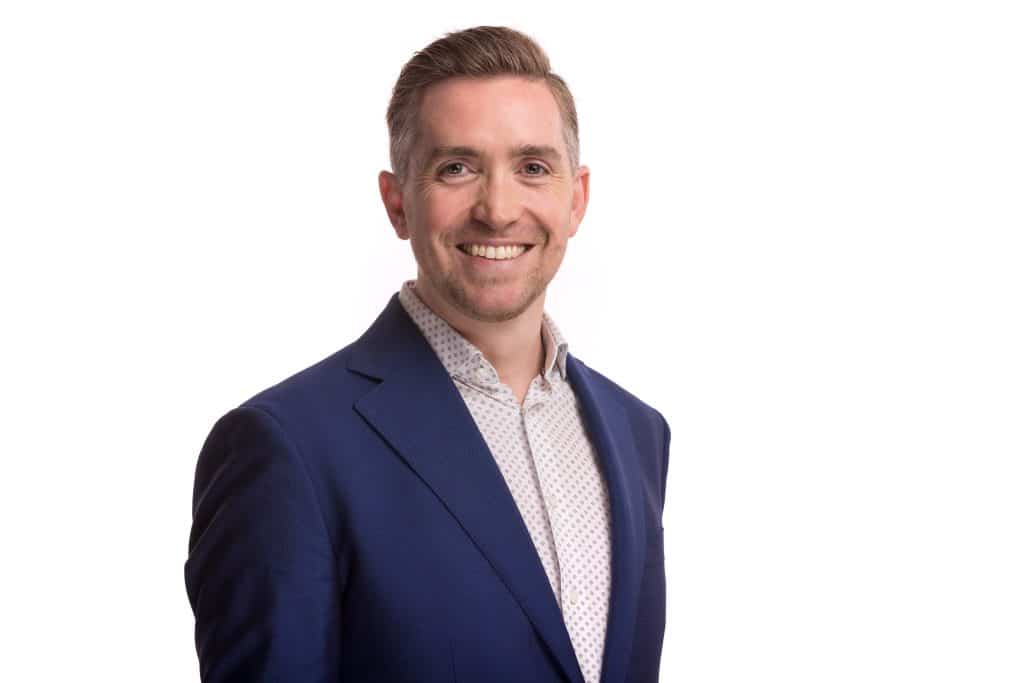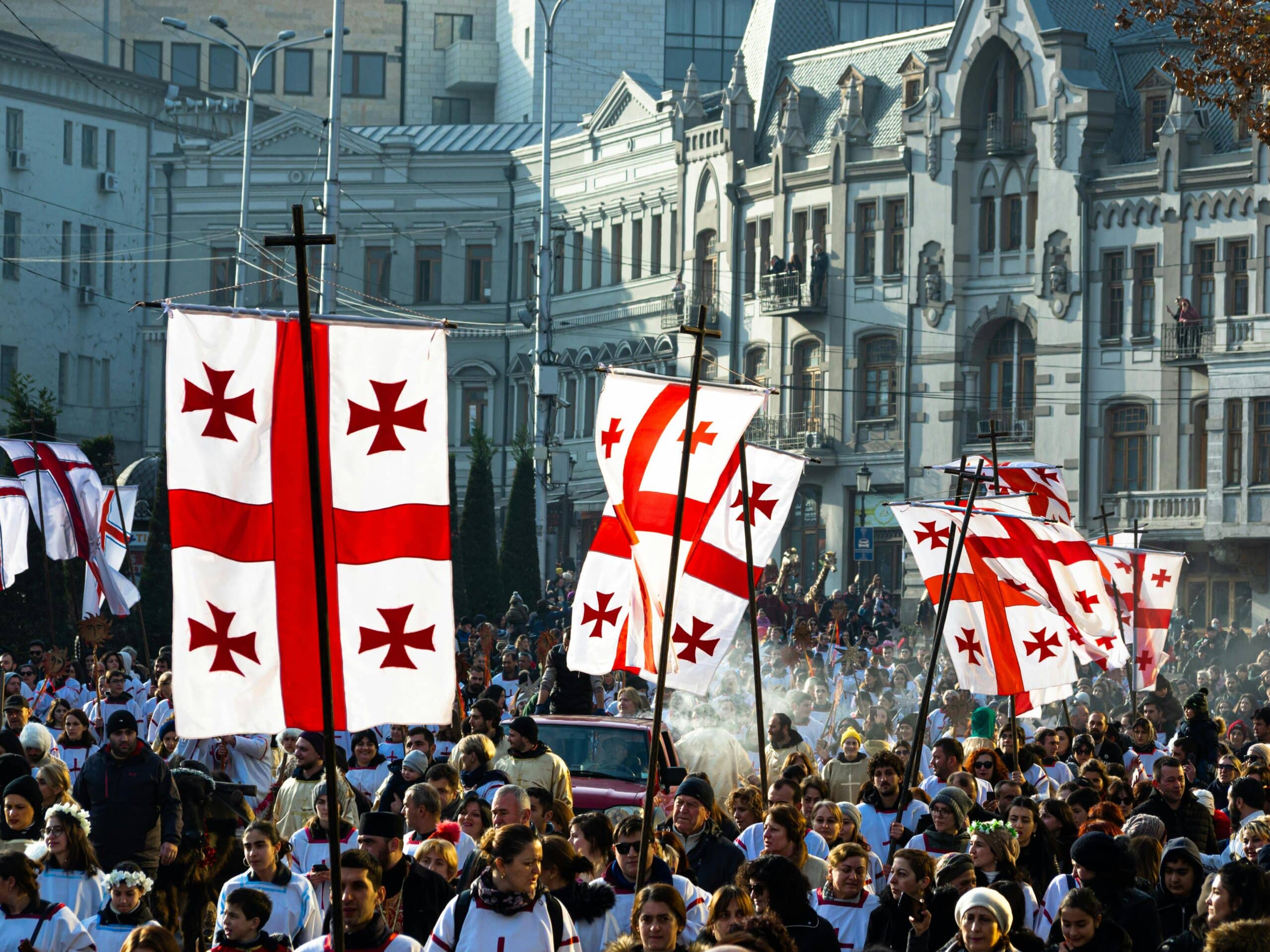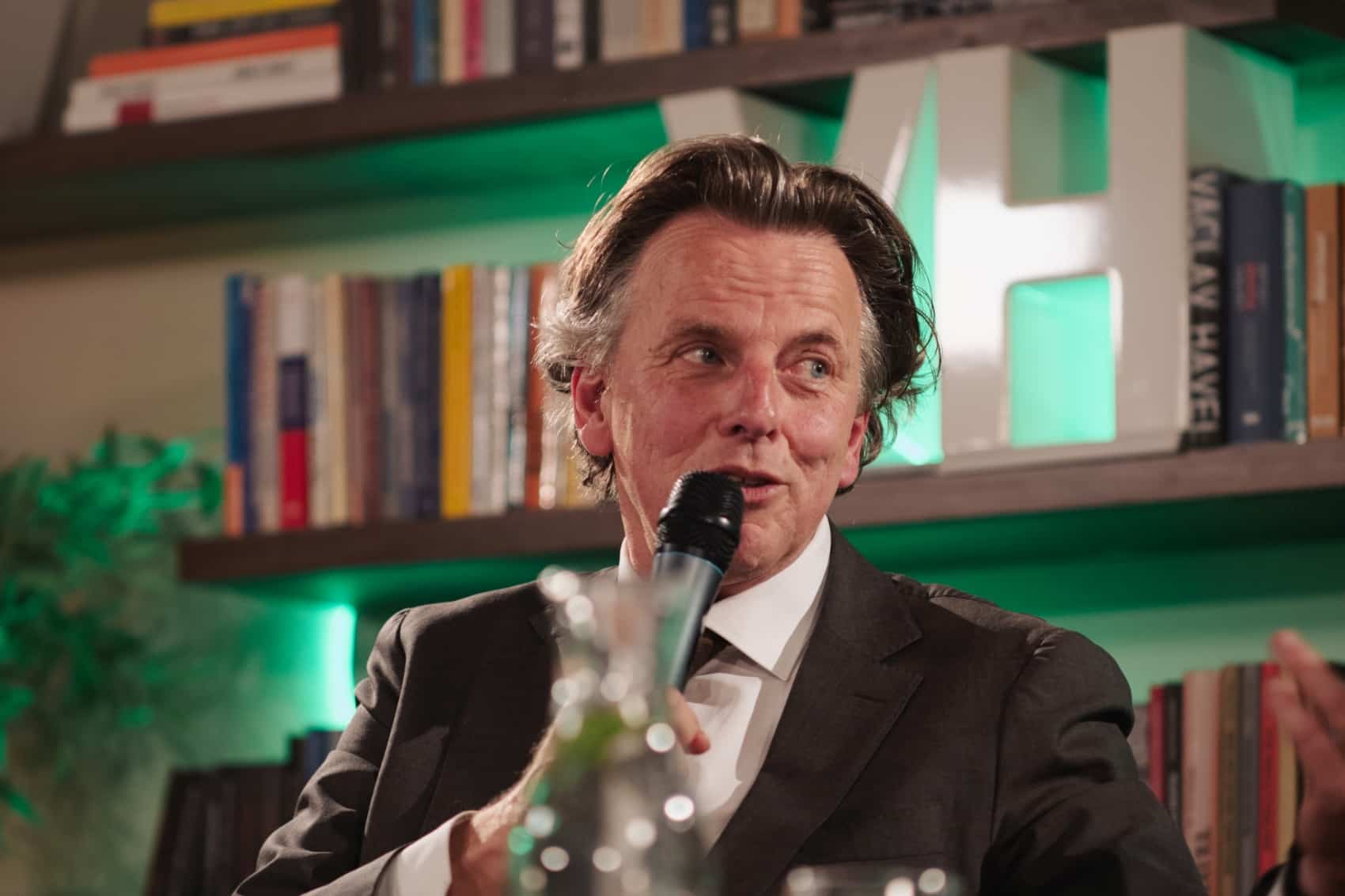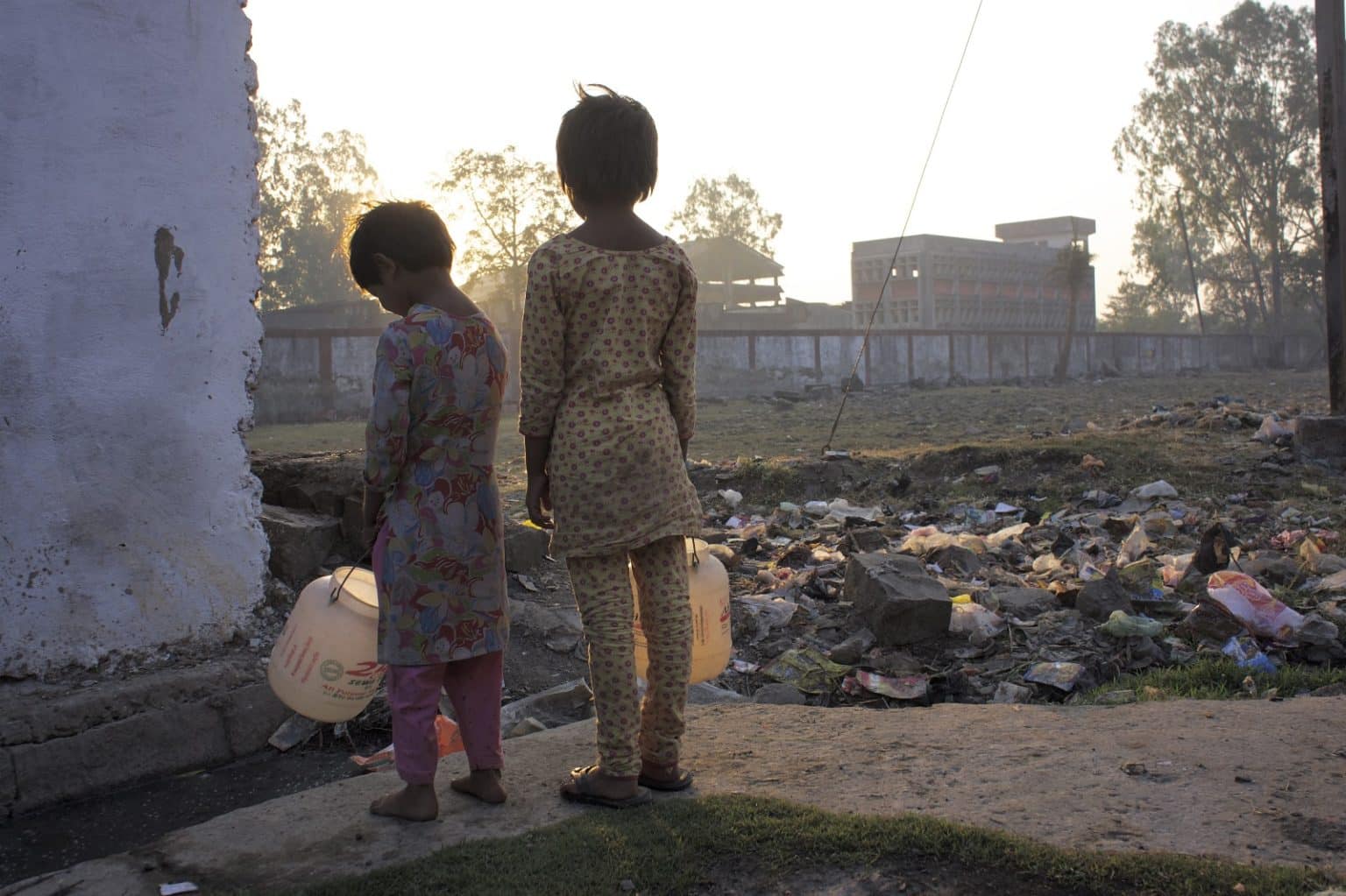As of 1 November, Kido Koenig is the new director of the Max van der Stoel Foundation! He takes over from Arjen Berkvens, who has been director of the FMS since its foundation in 2013 and is now taking up a new position. Kido has extensive experience in the business world, as well as extensive involvement in public life. In particular for the FMS, as a trainer and discussion leader. In this interview, Kido introduces himself to the friends and partners of the FMS!
Kido, nice to meet you. Not everyone will already know you. Can you briefly introduce yourself?
I started volunteering for the FMS in 2011, having already been involved in youth politics for some time, for example as vice-president of the Young Socialists and president of the National Youth Council, During that time, I also enjoyed participating in debate tournaments, and working for development cooperation. I also did a lot of training, so that's how I came rolling in as a trainer at the FMS. I worked as a consultant at Capgemini for a long time, because I felt it was important to gain that experience. But I have always remained committed.
"At the FMS, we are really privileged to work with very special people and very special subjects, to be able to really make a difference."
I think my friends would describe me as energetic, someone with lots of ideas and very committed. In working with my colleagues, I think it's important that you can rely on each other, learn to count on each other's strengths. Everyone has to be able to give a little bit of themselves away, otherwise you won't get anywhere. I think achieving something together as a team - with the emphasis on together - is the best, but also the most fun way of working. In doing so, it is important to reason back from the impact you want to have. At the FMS, we are really privileged to work with very special people and very special subjects, to really make a difference.
What relevant experience do you bring from the private sector that we at the FMS can learn from?
Look, in the private sector you take other forces into account, which makes you work differently. For example, you have a bit more freedom in your daily work because you are less under a magnifying glass from public opinion. There is a stronger sense that time is money and less that things have to be weighed up properly, which makes you look at efficiency in a certain way. There is also more room for innovation. There is a huge incentive to smartly explore how to generate and apply new ideas. So, in business, there is a certain way of working from which the public sphere can learn lessons.
At the same time, you shouldn't run a foundation like a business, just as you shouldn't run a company like a foundation. Conversely, I have been able to apply lessons from the public sector in my current work. It is precisely in this interaction between the two worlds that there are lessons for both sides.
Why did you choose to apply for the position of director of the FMS?
I think it's a combination of several things. I have always been very involved in the foundation and as long as I have been a trainer, I have derived tremendous pleasure and satisfaction from it. At the same time, I see how democracy is under pressure worldwide. That bombs are falling on people I have come to regard as friends through my experiences at the FMS. Surely it began to gnaw at me that so much is going wrong in the world. Your work is what you spend most of your time on during your career. More than sleeping, friends, sports or eating. I want to devote that time and effort to things I think: this is where I need to get involved now. That's why I left my current job. The pull factor - that I can fully commit to this at FMS - was so great that I thought: I want to do this.
"It started gnawing at me that so much is going wrong in the world. This is where I need to get involved now."
Max van der Stoel himself is an inspiring person, in more ways than one. When he died, Frans Timmermans wrote a piece about him. He wrote that, during World War II, the Nazis bombed the horticultural farm of Max van der Stoel's grandparents, who were teenagers at the time. Van der Stoel stood there with clenched fists, with tremendous anger in his body. Because of the injustice that the Nazis thought it necessary to bomb the market garden, the livelihood of his grandparents to bomb.
When I read that, I thought: indeed, I felt that too, actually already when Putin declared the Donets and Luhansk provinces independent. I thought at the time: no, no, no, this is going wrong, this is going to go all wrong. I really felt it in my gut. So that powerlessness, that anger, that you can't do anything for a moment, I recognised exactly. Of course it is incomparable, because I am here in my safe house.
Max van der Stoel made the choice to spend his life doing the maximum for peace, diplomacy and security. I find that truly an inspiration. And when the news came that Arjen Berkvens, surely one of my heroes, is going to do something else, everything came together.
"Max van der Stoel has spent his life doing the maximum for peace, diplomacy and security. I really find that an inspiration."
You have obviously been involved with the FMS for some time. What experience in your years as a trainer with the FMS has stuck out to you the most?
I was once as a trainer at a regional training in Moldova. This was on the weekend of the MH17 disaster. People were even late because it had just happened. At that training there were not only Moldovans, Georgians, Ukrainians, Belarusians and Armenians, there were also two Russians, a young man and a young woman. Of course, the Ukrainians and Belarusians present did not find it so easy at first that there were also Russians.
The first evening we sat together. It was tradition that a representative from each country stood up for a moment and said a few words. Then one of the Russians, the young woman, stood up to speak. The room waited in silence. The young Russian woman said she was touched that she was allowed to be present at the training. She thought it was very special to meet peers from surrounding countries, with the same dream - a Russia without Putin. And then you saw everyone looking surprised. Beliefs can find allies across borders. That can be a very liberating feeling. After her speech, the Russian had to cry, because she was very emotional that she could speak freely. She was then hugged by one of the Ukrainian participants, who loved her words. It was such a beautiful moment! It still sticks with me immensely.
There are Russians who have always spoken out. A sister party in Russia to whom I once gave training has been expertly wrung out by Putin. They just don't exist anymore. At times like that, you do think: what is the point of training? But at the training there were also some participants who are still active in the opposition, still speaking out. I hope then: If we have touched a few people with our ideas, and that has helped, then I am already very proud.
"Things don't suddenly go well for democracy if we went for a weekend. But if we haven't been, what have we done?"
It is like that in more countries. Democracy is not suddenly doing well if we went for a weekend. But if we haven't been, what have we done? And if no one comes, how alone must the opposition not feel? So I hope every time we hit some people, that a light goes on somewhere.
From the past to the future: What are your ideas for the future of the FMS?
I think in terms of message and mission, FMS is really a shot in the arm. I'm not going to say: we're going to change course. I do think sometimes we don't realise enough what a great pool of volunteers and alumni we have. So I'm going to do my best to get even more out of the involvement of the people who care about us. People like to do something and feel they are contributing something. If we provide more opportunities to do that, I would love that.
And beyond that, I think it's important that we continue to encourage public debate on issues that are underexposed but really matter. What foundations do that - have diaspora engage with politicians, with an audience? Political cafés where you get people thinking. Getting someone to think is sometimes all the gain.
Again, I want to continue the current line of the FMS with as much vigour as possible. That is my main goal. That is going to have different faces and we are going to try different things. Hopefully, thanks to my private background, we will still be able to establish cooperation or sponsorship do. But I am of the opinion that you should not go somewhere and think: I know it all better, I am going to fix it. I'm not like that either. We are going to continue what we are already doing.





